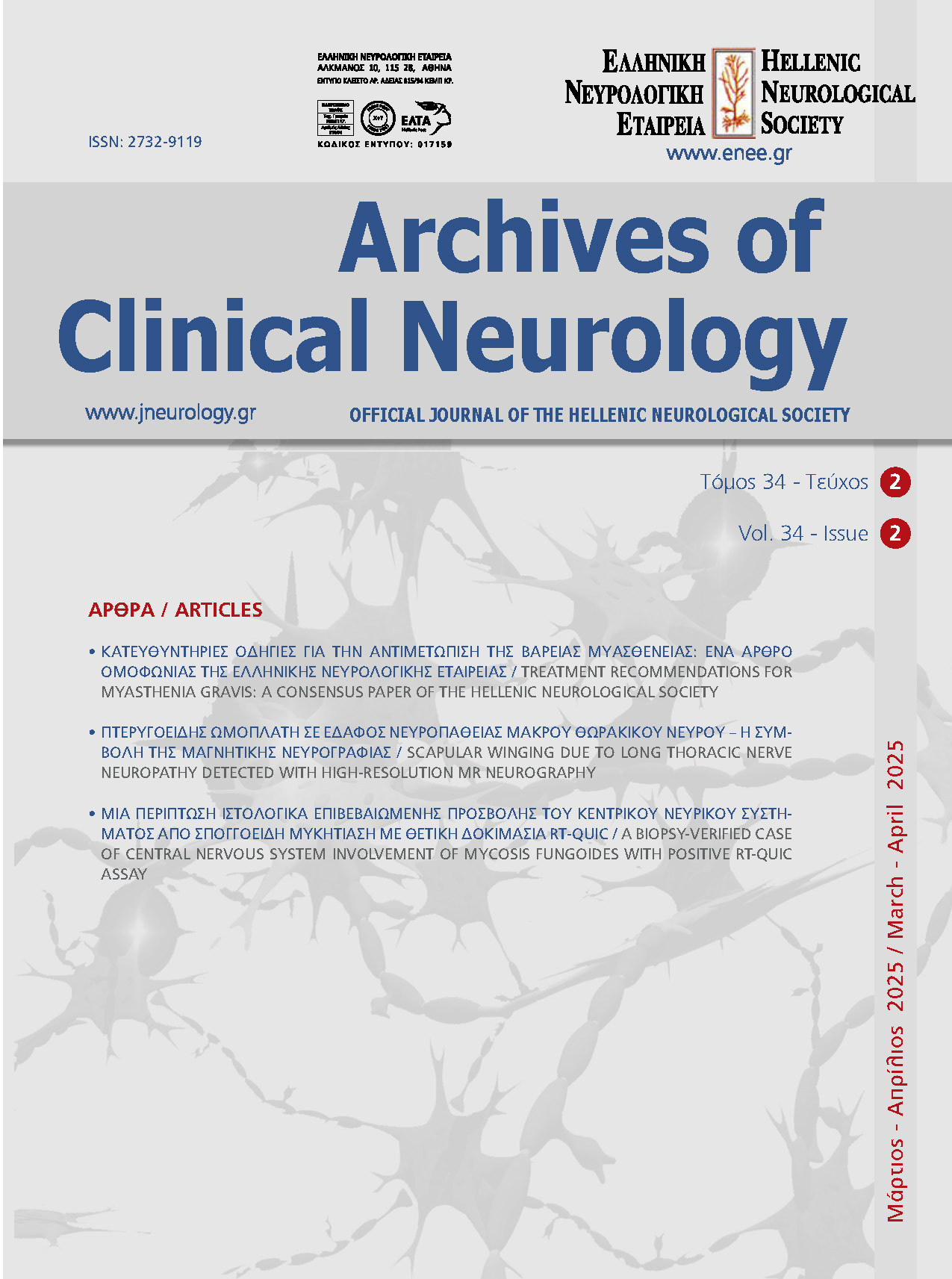HERCULES: A REAL-WORLD STUDY ON THE EFFECTIVENESS AND TOLERABILITY OF ANTI-CGRP PROPHYLACTIC TREATMENTS FOR MIGRAINE.
PROTOCOL OF THE ONGOING NATIONAL MULTICENTER REGISTRY BY THE HELLENIC HEADACHE SOCIETY.
Keywords:
Migraine, Headache, Monoclonal Antibodies, Anti-CGRP mAbs, ProphylaxisAbstract
Background:
The HERCULES study, initiated by the Hellenic Headache Society (HHS), aims to evaluate the real-world effectiveness and tolerability of anti-CGRP monoclonal antibodies for migraine prophylaxis.
Methods:
This is an ongoing, prospective, national multicenter registry involving public outpatient headache clinics across Greece. Eligible participants are patients diagnosed with episodic migraine (8–14 migraine days/month) who have failed at least three standard prophylactic therapies. Data are collected using a dedicated digital platform, including headache history, neurological exams, paraclinical tests, headache diaries, and validated questionnaires (MIDAS, HIT-6, MSQv2.1). Follow-up visits are scheduled at 3 months and every 6 months thereafter for 2 years.
Results:
Outcomes assessed include changes in monthly migraine days, ≥50% response rates, adverse events, and quality of life. Patients with active vascular disease, pregnancy, major psychiatric conditions, or severe constipation (for Erenumab) are excluded.
Conclusion:
HERCULES provides structured real-world data on anti-CGRP prophylactic therapies for migraine in Greece. The results are expected to inform clinical practice and optimize treatment selection based on effectiveness, tolerability, and patient characteristics.


